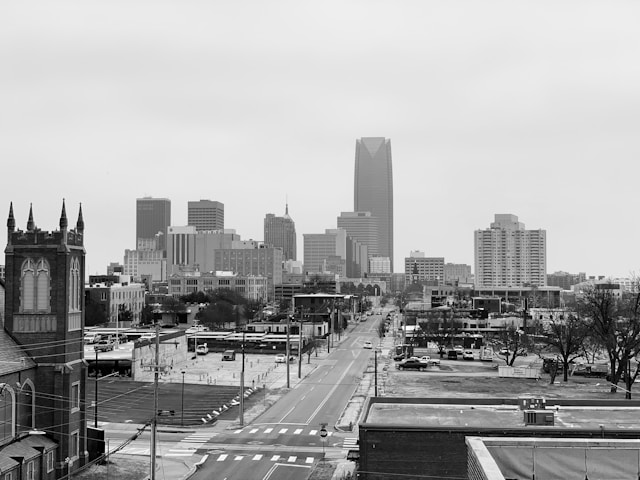Short-term rentals, commonly referred to as Airbnbs, have become a popular choice for travelers seeking unique and affordable accommodations. However, for property owners and investors in Oklahoma City, navigating the regulatory landscape is crucial to ensure compliance and avoid penalties. This blog post provides a comprehensive overview of the short-term rental regulations in Oklahoma City, highlighting key aspects that Airbnb hosts need to know.
Overview of Short-Term Rental Regulations in Oklahoma City
Oklahoma City has implemented specific regulations to manage the growth of short-term rentals within its jurisdiction. These regulations aim to balance the benefits of short-term rentals with the need to maintain neighborhood integrity and address concerns from residents.
Registration and Licensing
In Oklahoma City, all short-term rental properties must be registered and licensed with the city. The process involves submitting an application to the city’s Planning Department, providing detailed information about the property, and paying the necessary fees. The registration process ensures that the city can monitor and regulate the number of short-term rentals operating within its limits.
Resources:
Zoning Requirements
Zoning regulations play a significant role in determining where short-term rentals can operate in Oklahoma City. The city has designated specific zoning districts where short-term rentals are permitted. Property owners must ensure that their rental property is located within an approved zoning district before applying for a short-term rental license.
Resources:
Top 100 Airbnb Rental Markets

Instantly compare top 100 short-term (Airbnb) rental markets in the US
Safety and Health Standards
To ensure the safety and well-being of guests, Oklahoma City requires all short-term rentals to meet certain health and safety standards. This includes having working smoke detectors, carbon monoxide detectors, and fire extinguishers. Additionally, properties must be kept in good repair and comply with local building codes.
Resources:
Occupancy Limits and Parking
Oklahoma City has established occupancy limits for short-term rentals to prevent overcrowding and minimize the impact on residential neighborhoods. Typically, the maximum number of guests allowed is determined by the number of bedrooms in the property. Additionally, hosts must provide adequate off-street parking for their guests to reduce congestion and parking issues in the neighborhood.
Resources:
Taxes and Fees
Airbnb hosts in Oklahoma City are required to collect and remit applicable taxes on their rental income. This includes state sales tax, city lodging tax, and any other applicable local taxes. It is essential for hosts to understand their tax obligations and ensure timely payment to avoid penalties.
Resources:
Enforcement and Penalties
The city of Oklahoma City takes compliance with short-term rental regulations seriously. Property owners who fail to adhere to the rules may face penalties, including fines and revocation of their short-term rental license. The city conducts regular inspections and responds to complaints from residents to ensure that all short-term rentals operate within the legal framework.
Resources:
Tips for Airbnb Hosts in Oklahoma City
- Stay Informed: Regularly check for updates to short-term rental regulations in Oklahoma City to ensure compliance.
- Maintain Good Neighbor Relations: Communicate with neighbors and address any concerns they may have about your short-term rental.
- Keep Accurate Records: Document all rental transactions, maintenance activities, and communications with guests to protect yourself in case of disputes or inspections.
- Invest in Quality: Ensure your property meets all health and safety standards and provides a comfortable experience for guests.
Conclusion
Operating an Airbnb in Oklahoma City can be a lucrative venture, but it requires adherence to local regulations to avoid potential issues. By understanding and complying with the city’s short-term rental rules, hosts can provide a safe and enjoyable experience for guests while contributing positively to the community.
For more detailed information and assistance, visit the resources provided in this article and consult with local authorities as needed.
References
- Oklahoma City Planning Department
- Oklahoma City Zoning Map
- Oklahoma City Building Codes
- Oklahoma Tax Commission
Feel free to reach out if you have any specific questions or need further guidance on navigating the short-term rental regulations in Oklahoma City.


